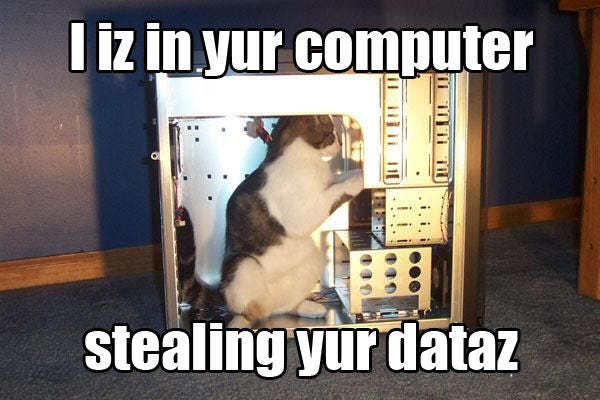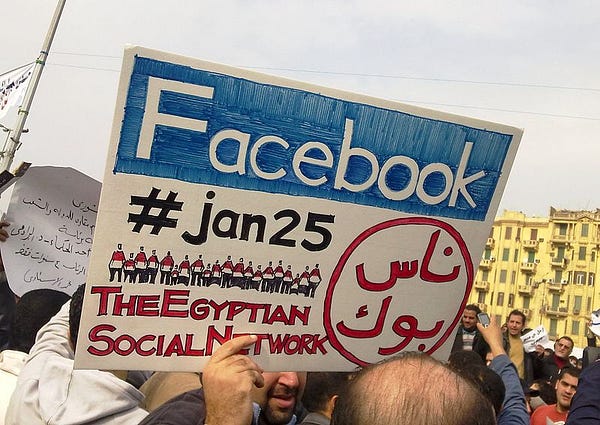Hacking the Attention Economy
danah boyd | apophenia 2017-01-11
For most non-technical folks, “hacking” evokes the notion of using sophisticated technical skills to break through the security of a corporate or government system for illicit purposes. Of course, most folks who were engaged in cracking security systems weren’t necessarily in it for espionage and cruelty. In the 1990s, I grew up among teenage hackers who wanted to break into the computer systems of major institutions that were part of the security establishment, just to show that they could. The goal here was to feel a sense of power in a world where they felt pretty powerless. The rush was in being able to do something and feel smarter than the so-called powerful. It was fun and games. At least until they started getting arrested.
Hacking has always been about leveraging skills to push the boundaries of systems. Keep in mind that one early definition of a hacker (from the Jargon File) was “A person who enjoys learning the details of programming systems and how to stretch their capabilities, as opposed to most users who prefer to learn only the minimum necessary.” In another early definition (RFC:1392), a hacker is defined as “A person who delights in having an intimate understanding of the internal workings of a system, computers and computer networks in particular.” Both of these definitions highlight something important: violating the security of a technical system isn’t necessarily the primary objective.
Indeed, over the last 15 years, I’ve watched as countless hacker-minded folks have started leveraging a mix of technical and social engineering skills to reconfigure networks of power. Some are in it for the fun. Some see dollar signs. Some have a much more ideological agenda. But above all, what’s fascinating is how many people have learned to play the game. And in some worlds, those skills are coming home to roost in unexpected ways, especially as groups are seeking to mess with information intermediaries in an effort to hack the attention economy.

It all began with memes… (and porn…)
In 2003, a 15-year-old named Chris Poole started an image board site based on a Japanese trend called 4chan. His goal was not political. Rather, like many of his male teenage peers, he simply wanted a place to share pornography and anime. But as his site’s popularity grew, he ran into a different problem — he couldn’t manage the traffic while storing all of the content. So he decided to delete older content as newer content came in. Users were frustrated that their favorite images disappeared so they reposted them, often with slight modifications. This gave birth to a phenomenon now understood as “meme culture.” Lolcats are an example. These are images of cats captioned with a specific font and a consistent grammar for entertainment.

Those who produced meme-like images quickly realized that they could spread like wildfire thanks to new types of social media (as well as older tools like blogging). People began producing memes just for fun. But for a group of hacker-minded teenagers who were born a decade after I was, a new practice emerged. Rather than trying to hack the security infrastructure, they wanted to attack the emergent attention economy. They wanted to show that they could manipulate the media narrative, just to show that they could. This was happening at a moment when social media sites were skyrocketing, YouTube and blogs were challenging mainstream media, and pundits were pushing the idea that anyone could control the narrative by being their own media channel. Hell, “You” was TIME Magazine’s person of the year in 2006.
Taking a humorist approach, campaigns emerged within 4chan to “hack” mainstream media. For example, many inside 4chan felt that widespread anxieties about pedophilia were exaggerated and sensationalized. They decided to target Oprah Winfrey, who, they felt, was amplifying this fear-mongering. Trolling her online message board, they got her to talk on live TV about how “over 9,000 penises” were raping children. Humored by this success, they then created a broader campaign around a fake character known as Pedobear. In a different campaign, 4chan “b-tards” focused on gaming the TIME 100 list of “the world’s most influential people” by arranging it such that the first letter of each name on the list spelled out “Marblecake also the game,” which is a known in-joke in this community. Many other campaigns emerged to troll major media and other cultural leaders. And frankly, it was hard not to laugh when everyone started scratching their heads about why Rick Astley’s 1987 song “Never Gonna Give You Up” suddenly became a phenomenon again.
By engaging in these campaigns, participants learned how to shape information within a networked ecosystem. They learned how to design information for it to spread across social media.
They also learned how to game social media, manipulate its algorithms, and mess with the incentive structure of both old and new media enterprises. They weren’t alone. I watched teenagers throw brand names and Buzzfeed links into their Facebook posts to increase the likelihood that their friends would see their posts in their News Feed. Consultants starting working for companies to produce catchy content that would get traction and clicks. Justin Bieber fans ran campaign after campaign to keep Bieber-related topics in Twitter Trending Topics. And the activist group Invisible Children leveraged knowledge of how social media worked to architect the #Kony2012 campaign. All of this was seen as legitimate “social media marketing,” making it hard to detect where the boundaries were between those who were hacking for fun and those who were hacking for profit or other “serious” ends.
Running campaigns to shape what the public could see was nothing new, but social media created new pathways for people and organizations to get information out to wide audiences. Marketers discussed it as the future of marketing. Activists talked about it as the next frontier for activism. Political consultants talked about it as the future of political campaigns. And a new form of propaganda emerged.
The political side to the lulz
In her phenomenal account of Anonymous — “Hacker, Hoaxer, Whistleblower, Spy” — Gabriella Coleman describes the interplay between different networks of people playing similar hacker-esque games for different motivations. She describes the goofy nature of those “Anons” who created a campaign to expose Scientology, which many believed to be a farcical religion with too much power and political sway. But she also highlights how the issues became more political and serious as WikiLeaks emerged, law enforcement started going after hackers, and the Arab Spring began.

Anonymous was birthed out of 4chan, but because of the emergent ideological agendas of many Anons, the norms and tactics started shifting. Some folks were in it for fun and games, but the “lulz” started getting darker and those seeking vigilante justice started using techniques like “doxing”to expose people who were seen as deserving of punishment. Targets changed over time, showcasing the divergent political agendas in play.
Perhaps the most notable turn involved “#GamerGate” when issues of sexism in the gaming industry emerged into a campaign of harassment targeted at a group of women. Doxing began being used to enable “swatting” — in which false reports called in by perpetrators would result in SWAT teams sent to targets’ homes. The strategies and tactics that had been used to enable decentralized but coordinated campaigns were now being used by those seeking to use the tools of media and attention to do serious reputational, psychological, economic, and social harm to targets. Although 4chan had long been an “anything goes” environment (with notable exceptions), #GamerGate became taboo there for stepping over the lines.
As #GamerGate unfolded, men’s rights activists began using the situation to push forward a long-standing political agenda to counter feminist ideology, pushing for #GamerGate to be framed as a serious debate as opposed to being seen as a campaign of hate and harassment. In some ways, the resultant media campaign was quite successful: major conferences and journalistic enterprises felt the need to “hear both sides” as though there was a debate unfolding. Watching this, I couldn’t help but think of the work of Frank Luntz, a remarkably effective conservative political consultant known for reframing issues using politicized language.
As doxing and swatting have become more commonplace, another type of harassment also started to emerge en masse: gaslighting. This term refers to a 1944 Ingrid Bergman film called “Gas Light” (which was based on a 1938 play). The film depicts psychological abuse in a domestic violence context, where the victim starts to doubt reality because of the various actions of the abuser. It is a form of psychological warfare that can work tremendously well in an information ecosystem, especially one where it’s possible to put up information in a distributed way to make it very unclear what is legitimate, what is fake, and what is propaganda. More importantly, as many autocratic regimes have learned, this tactic is fantastic for seeding the public’s doubt in institutions and information intermediaries.
The democratization of manipulation
In the early days of blogging, many of my fellow bloggers imagined that our practice could disrupt mainstream media. For many progressive activists, social media could be a tool that could circumvent institutionalized censorship and enable a plethora of diverse voices to speak out and have their say. Civic minded scholars were excited by “smart mobs” who leveraged new communications platforms to coordinate in a decentralized way to speak truth to power. Arab Spring. Occupy Wall Street. Black Lives Matter. These energized progressives as “proof” that social technologies could make a new form of civil life possible.
I spent 15 years watching teenagers play games with powerful media outlets and attempt to achieve control over their own ecosystem. They messed with algorithms, coordinated information campaigns, and resisted attempts to curtail their speech. Like Chinese activists, they learned to hide their traces when it was to their advantage to do so. They encoded their ideas such that access to content didn’t mean access to meaning.
Of course, it wasn’t just progressive activists and teenagers who were learning how to mess with the media ecosystem that has emerged since social media unfolded. We’ve also seen the political establishment, law enforcement, marketers, and hate groups build capacity at manipulating the media landscape. Very little of what’s happening is truly illegal, but there’s no widespread agreement about which of these practices are socially and morally acceptable or not.
The techniques that are unfolding are hard to manage and combat. Some of them look like harassment, prompting people to self-censor out of fear. Others look like “fake news”, highlighting the messiness surrounding bias, misinformation, disinformation, and propaganda. There is hate speech that is explicit, but there’s also suggestive content that prompts people to frame the world in particular ways. Dog whistle politics have emerged in a new form of encoded content, where you have to be in the know to understand what’s happening. Companies who built tools to help people communicate are finding it hard to combat the ways their tools are being used by networks looking to skirt the edges of the law and content policies. Institutions and legal instruments designed to stop abuse are finding themselves ill-equipped to function in light of networked dynamics.
The Internet has long been used for gaslighting, and trolls have long targeted adversaries. What has shifted recently is the scale of the operation, the coordination of the attacks, and the strategic agenda of some of the players.
For many who are learning these techniques, it’s no longer simply about fun, nor is it even about the lulz. It has now become about acquiring power.
A new form of information manipulation is unfolding in front of our eyes. It is political. It is global. And it is populist in nature. The news media is being played like a fiddle, while decentralized networks of people are leveraging the ever-evolving networked tools around them to hack the attention economy.
I only wish I knew what happens next.
This post was first published as part of a series on media, accountability, and the public sphere. See also:
- What’s Propaganda Got To Do With It? by Caroline Jack
- Did Media Literacy Backfire? by danah boyd
- Are There Limits to Online Free Speech? by Alice Marwick
- Why America is Self-Segregating by danah boyd
- How do you deal with a problem like “fake news?” by Robyn Caplan